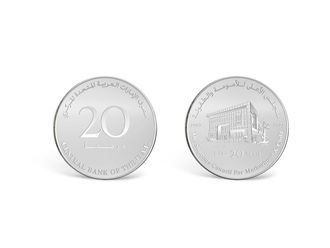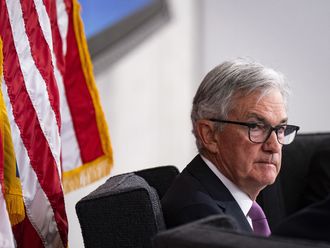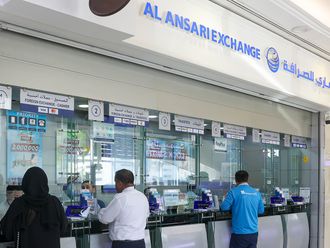Dubai: The UAE has a liberal economy, which imposes no restrictions on the movement of funds, but its regulatory infrastructure prevents any exploitation of its financial system, a senior official said Tuesday.
As the UAE moves ahead with economic diversification and development, Obaid Humaid Al Tayer, Minister of State for Financial Affairs, told the Federal National Council (FNC) the UAE has a liberal and active economy as there are no restrictions on the movement of funds used for trade, investments or personal consumption.
"As a major regional trade and financial centre, the regulatory infrastructure always seeks to prevent the criminal exploitation of the financial system through money laundering and financing terrorism," he said.
Al Tayer, who was answering a question from Mohammad Abdullah Al Za'abi, an FNC member from Sharjah, said money laundering is defined as any banking transaction aiming to illegally hide and/or change the nature of funds in order for the funds to appear legally sourced. This definition includes funds directed to finance terrorist or criminal activities.
In 2002 the UAE passed an anti-money laundering law that imposes restrictions on transfers and fixed the maximum penalty for money-laundering to seven years in jail and a Dh10 million fine.
Responsibility
Al Tayer said laws, regulations and procedures have been put in place with the goal of protecting the UAE financial system from exploitation. "Financial institutions are responsible for tracking any transactions suspected to be linked to money laundering and/or terrorism finance and reporting it to the Money Laundering and Suspicious Activities Unit at the Central Bank," he said. He added if a transaction is suspected to be linked to money laundering or terrorism, banks and financial companies concerned must report it to the money laundering unit regardless of the transaction's amount. Upon referral to the unit, the transaction is thoroughly analysed and one or more of the following procedures are taken:
The transaction is entered in the money laundering unit's database;
- Request the reporting entity to meet the client;;
- Request the reporting entity to monitor the account;
- Relay the case to law enforcement authorities to continue the investigation;
- Obtain information from other financial data units, if necessary;
- Freeze the account and report the case to the public prosecutor.
Al Tayer stressed in case investigative procedures are made regarding suspicious transactions, clients are able to continue normal account transactions without any complications or hurdles, unless the investigation reveals implication in money laundering upon which the account will be frozen.
Upon freezing an account, clients are asked to present to present documents to prove the transactions made were legal.
"Therefore there are no restrictions on deposits, withdrawals of large sums, execution of investment transaction and fund transfers in UAE as long as the funds are legally sourced and are directed towards legal purposes."












